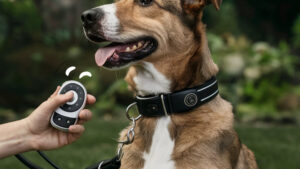Dry dog food can be good for small breeds if it meets their nutritional needs. Look for formulas specifically designed for their size and metabolism.
Small dog breeds often require specialized nutrition due to their higher metabolism and unique health needs. Dry dog food, also known as kibble, offers a convenient option that can support their dental health while providing essential nutrients. Many brands formulate kibble specifically for small breeds, featuring smaller pieces that are easier for them to chew.
Choosing the right dry food can enhance your dog’s overall well-being, helping maintain energy levels and a healthy weight. It’s essential to read labels and select high-quality ingredients to ensure your small dog gets the best nutrition possible. Balancing dry food with wet options can also benefit hydration and palatability.
Tailoring Nutrition For Small Breeds
Nutrition for small breeds needs to be tailored to their specific needs. Small dogs require a diet that meets their higher metabolism. This often includes smaller kibble sizes that are easier for them to chew and digest. While some small dogs can handle regular kibble, size-specific food is generally preferred.
Metabolic considerations play a crucial role in their diet. Small breeds tend to burn calories faster. Therefore, they need a nutrient-dense food that provides essential vitamins and minerals. Proper nutrition helps maintain their energy levels and overall health.
| Food Type | Benefits |
|---|---|
| Dry Dog Food | Convenient, promotes oral health, cost-effective |
| Wet Dog Food | Better hydration, easier to eat, enhances palatability |
Dry Dog Food Pros And Cons
Dry dog food offers several benefits for small breeds. One major advantage is its positive impact on dental health. Chewing dry kibble helps reduce plaque and tartar buildup. This can lead to healthier teeth and fresher breath for your pet.
Storage and convenience are additional benefits of dry dog food. It has a longer shelf life compared to wet food. Dry kibble is also easy to measure and serve. Owners appreciate that it requires no refrigeration. This makes it a practical choice for busy households.
Kibble Size Matters
Choosing the right kibble size for small breeds is essential. Ease of eating matters greatly for their comfort. Smaller kibble helps prevent choking and encourages better chewing. Dogs can enjoy their meals without stress.
Digestive health also benefits from the right kibble size. Small dogs digest food differently than larger breeds. Smaller pieces are easier to break down, leading to better nutrient absorption. This can help reduce stomach upset and improve overall health.
| Benefits | Impact on Small Breeds |
|---|---|
| Ease of Eating | Reduces choking risk and promotes better chewing |
| Digestive Health | Enhances nutrient absorption and reduces stomach issues |
Comparing Dry And Wet Foods
Dry food offers convenience and cost-effectiveness for small breeds. It is easy to store and serve. Small breed dogs benefit from smaller kibble sizes, which aid chewing and digestion. Wet food, on the other hand, provides better hydration and can enhance satiety and palatability. This means dogs may feel fuller and enjoy their meals more.
Dry food can also help maintain oral health by reducing plaque buildup. It generally has lower carbohydrate content, making it suitable for dogs that need to manage their weight. A mixture of both dry and wet food can cater to a small dog’s needs effectively.
| Factor | Dry Food | Wet Food |
|---|---|---|
| Hydration | Lower | Higher |
| Satiety | Good | Better |
| Palatability | Moderate | High |
| Convenience | High | Lower |

Health Benefits Of Small Breed Formulas
Small breed formulas offer unique health benefits tailored for smaller dogs. These diets support skin and coat nutrition effectively. Ingredients like omega fatty acids promote a shiny, healthy coat. Proper nutrients also help keep skin hydrated and reduce itching.
Appropriate caloric content is vital for small breeds. These dogs have higher metabolic rates, needing more calories per pound. Small breed food is designed to meet these needs without overfeeding. This ensures they maintain a healthy weight while enjoying their meals.
Common Myths Debunked
Kibble size plays a significant role in a small dog’s eating habits. Many believe that small dogs need tiny kibble for proper eating. In reality, even small breeds can manage regular-sized kibble. The key is ensuring they get the right nutrients.
Some think that small dogs cannot absorb nutrients from larger kibble. This is a myth. Dogs, regardless of size, can digest a variety of kibble sizes. What matters most is the quality of the ingredients.
| Myth | Fact |
|---|---|
| Kibble size must match dog size | Small dogs can handle regular kibble |
| Small breeds absorb fewer nutrients | Digestive capability is not size-dependent |
Top Dry Food Brands For Small Breeds
Choosing the right dry dog food for small breeds depends on ingredient quality. Look for brands that use real meat as the first ingredient. Avoid fillers like corn and soy, which offer little nutrition. High-quality protein sources support muscle growth and overall health.
Brand reputation plays a crucial role in your decision. Trusted brands often have a history of producing safe and nutritious food. Check for customer reviews and expert recommendations. Brands like Orijen, Blue Buffalo, and Royal Canin are well-regarded for their commitment to quality.
| Brand | Key Ingredient | Reputation |
|---|---|---|
| Orijen | Real meat | Highly rated |
| Blue Buffalo | Chicken | Trusted |
| Royal Canin | Chicken meal | Respected |
Feeding Guidelines For Small Breeds
Portion control is vital for small breeds. These dogs have unique nutritional needs. Proper portions prevent obesity and ensure a healthy weight. Consult your vet for specific guidelines based on your dog’s age and activity level.
Feeding frequency is equally important. Small dogs thrive on smaller, more frequent meals. Aim for two to three meals daily. This routine helps maintain energy levels and digestion. Avoid leaving food out all day. This practice can lead to overeating.
| Feeding Schedule | Recommended Meals |
|---|---|
| Morning | 1 Meal |
| Afternoon | 1 Meal |
| Evening | 1 Meal (optional) |
Frequently Asked Questions
Is Dry Food Good For Small Dogs?
Dry food is generally good for small dogs. It supports dental health and offers convenience. Choose high-quality brands with appropriate kibble sizes for their small mouths. Ensure the food meets their nutritional needs. Always consult your vet for specific dietary recommendations tailored to your dog’s health.
Should Small Dogs Eat Wet Or Dry Food?
Small dogs can eat both wet and dry food. Wet food aids hydration and palatability, while dry food supports dental health and is more convenient. A combination of both can also be beneficial. Choose high-quality options that meet your dog’s nutritional needs for optimal health.
What Food Is Best For Small Dogs?
Small dogs thrive on high-quality dry food specifically formulated for their size. Look for options with high protein and essential nutrients. Brands like Purina Pro Plan and Blue Buffalo offer excellent choices. Always consider your dog’s specific dietary needs and consult your vet for recommendations.
Does My Small Breed Dog Need Small Breed Dog Food?
Small breed dogs benefit from small breed dog food. Smaller kibble sizes make it easier for them to chew and digest. This specialized food also provides the right nutrients without requiring larger portions, supporting their overall health and energy needs effectively.
Conclusion
Choosing dry dog food for small breeds can be beneficial. It offers convenience, promotes dental health, and often contains the necessary nutrients. Look for options specifically formulated for small dogs. Always consult your vet to ensure your pet’s unique needs are met.
A balanced diet is key to a happy, healthy pup.








